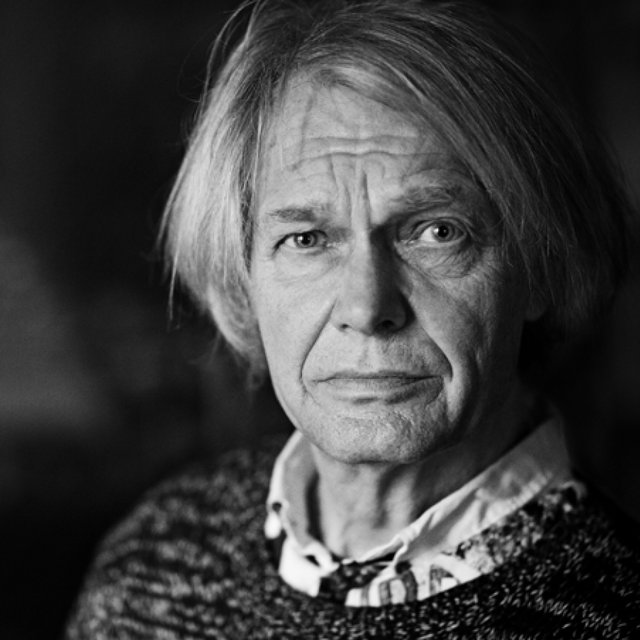Yak and Yeti (Yak og Yeti)
- Peter Laugesen (1942 - )
Introduction to:
Yak and Yeti (Yak og Yeti)
Published 2012, 141 pages
Peter Laugesen (1942 - ) is part of the powerful 1970s generation of Danish poets, which included, among others, his friend Dan Turèll (1946 - 1993). These poets drew inspiration from the American beat generation -- in Laugesen’s case, from Jack Kerouac in particular. The Danish 1970s poets valued poetic energy and expansiveness as opposed to the prevailing trends toward conceptualism and political poetry. Along the way, the70s poets made room for birdsong and silence, hymns and haiku, though never wavering from their committment to constantly and completely keep their writing as in-the-moment as possible.
Laugesen’s masterpiece is not any single volume. Rather, it is his ongoing, diligent output, in the form of one collection after another annually since 1967, that has become not only his masterpiece, but also a masterpiece of Scandinavian literature of the twentieth and
twenty-first centuries. But if one had to choose a single volume from the early 2000s, a volume that exemplifies Laugesen’s mature voice and has its own distinctive profile and anatomy, the clear choice would be Yak og Yeti (Yak and Yeti), 2012.
Yak and Yeti is subtitled “Blues for Chenga.” And Chenga is not a Tibetan poet-colleague; Chenga is, as faithful readers will already know, Laugesen’s Tibetan terrier, with whom he took daily walks for many years in and around Braband, his home neighborhood outside Århus. Many of Laugesen’s poems, whether or not they mention the dog, spring from these walks. Yak and Yeti is a “blues” because in the real time of the writing, the aging dog declines and ultimately dies. This may not be as great a sorrow for the reader as for the poet, but it comes close. The pathos of the book’s two final poems is the essence of simplicity:
Dharma’s trumpet
in Chenga’s fur
She won’t come back
tomorrow
Wind and rain sweep
over the little grave
The title Yak and Yeti is Laugesen’s epitaph for, and tribute to, the dog in light of Tibetan mythology: the dog in these poems functions as both a sacred cow and an abominable snowman. In many of the poems Chenga does not appear directly, but her presence is always felt, if only as a certain blue, melancholic tone and an insistent awareness of death amid Laugesen’s characteristic swirling and concentrated meditations on everything and nothing, wind and weather and interrelated artistic choices ranging from Kandinsky to Ben Webster:
the strange tired
off-kilter days of the past
wild weather
white drifts
the black thoughts’
red hearts
in the mirror
and now
it’s better
now
closer to death
now
far less tired
now
I’m awake
Awareness of death is also attentiveness to life.
The current U.S. president uses the phrase “like a dog” to describe those he considers spineless and worthless. But for Laugesen, there is no greater honor than being compared with a dog, with one dog in particular, her humble majesty Chenga:
The night rises up
like an old wet dog
Lars Bukdahl

AUTHOR:
Peter Laugesen (1942 - )
BOOK:
Yak and Yeti (Yak og Yeti)
Published 2012
141 pages
FOREIGN RIGHTS:
Jenny Thor
Peter Laugesen
was born in Copenhagen in 1942. In 1961 he graduated as a student from Århus Cathedral School and qualified as a typographer in 1961, a background which had a resounding influence on his understanding of script as an image and the concrete shape of individual words. Since 1965 he has worked as an author. Over and above his vast literary output, Laugesen has made a name for himself as a reviewer, newspaper columnist and translator and is known by many as the front man of the bebop jazz-inspired band “Peter Laugesen and Mindspray”. Peter Laugesen has received many prizes and bursaries, among which, in 1985, was the Danish Academy’s
Beatrice Prize and in 1992 he received the Danish Academy’s Grand Prize. In addition, he has been a member of The Danish Academy since 1997. His latest publication is the poetry collection “Aftenblade” (Evening papers) from 2019.